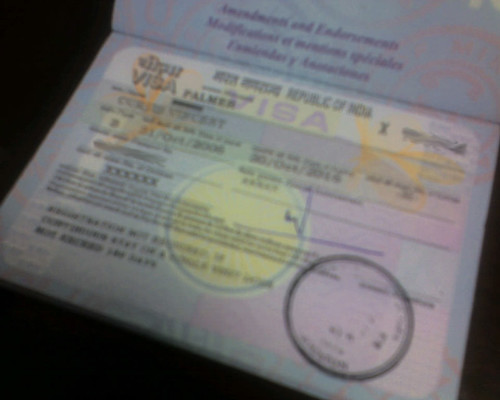Ladies and gentlemen it’s the middle of June. A lot of wonderfully fresh, optimistic, naïve and open minds are currently making “the move” from Africa to the West. This series, is for all of y’all who are making this great trek. This is also for all the people who are already abroad and want to guide these new arrivals but don’t quite know how.

I thought I would list some of the blog’s articles that give you useful, actionable information to help you navigate the tough waters of immigrant life, especially in the early days.
Help a Brother or a Sister Out
So if you know someone is about to immigrate overseas and you want to help them out, email this article by clicking on the “Email this” link at the bottom of the article.
By the way, if you haven’t, please make sure you sign up for my free Immigrant Survivor Guide Newsletter which is to the right of this article because I cover a lot of the stuff below in the newsletter. Sign up by filling in your first name and your email address.
10 Resources to Get You Started as an Immigrant
For guidance on how to become an immigrant in the first place, I will recommend Mwalimu.com and Workpermit.com
1) What is it Like Saying Goodbye to African Soil ? I wrote a post which got discussion started on that a while ago. Please ensure you leave a comment and add to the body of knowledge.
2) For those of you immigrating to Melbourne Australia., listen to some opinions on Melbourne from:
a) A student who arrived in early 2008.
b) Myself
c) My younger sisters who are 14 and 11.
3) The One Thing they Never Tell You Before You Immigrate: Gal Africana from a search for sanity talks about the rarely discussed loneliness that comes with being “the only black face in sight”.
4) How to Immigrate to Australia Within a Week :I wrote a long, extremely detailed series to help you “get settled” in your first week as an immigrant .
The article helps you deal with things like accomodation, mailing arrangements, banking, employment, documentation and so on and so forth.
I wrote it with students immigrating to Australia in mind, but I think anyone immigrating can get value out of it.
Check out the checklist that summarizes the entire series here. For all you immigrant veterans out there, feel free to add information to the series by leaving comments on the various posts.
5) The Secret to Working Beyond the 20 Hours Per Week Work Limit: Things you must be aware of if you chose to go against the 20 hours work per week limit that exists in Australia and the US. Read that post in collaboration the phenomenal guest posts by:
a) Seinlife on 5 Mistakes to Avoid as a Foreign Student in the US
b) Acolyte from My Part of the World
6) A word of advice you’ll hear often that you may dismiss: It has two parts:
a) This place is full of distractions.
b) Know why you’re here and keep your eye on the prize.
Don’t dismiss this advice: it separates the winners from the losers.
7) Do you ever intend on immigrating back to Africa? Don’t leave this to chance. Be fully aware at all times of whether or not you will and your reasons why.
8 ) Coach Carol outlines 7 barriers to immigrant success.
9) My personal thing thrown in here: A lot of you will get irritated by statements like, “Wow! You speak such good English!” or questions like, “Is Africa a country?” Don’t be. Just how much did you know about the State of Iowa or the Federal States and territories of Australia before you left Africa?
10) On a lighter note, this is for those of you who wonder what interracial relationships are like.

Update on 26/6/2008: Also check out gal africana’s post on UK working-holiday visas for further guidance
Update on 6/7/2008: Something to think about: Why Do Our Accents Change When We Immigrate Abroad?
Update on 19/7/2008: Two Useful Resources for People Settling in Australia
Update on 31/8/2008: Something That Happens to A Lot of Newbie Immigrants That’s Almost Never Discussed
Update on 3/12/2008: Top 10 Things I Learned About Job Hunting in Melbourne, Australia
That’s Not All:Njeri’s Guest Post
What’s happening, I’m losing my mojo? Even I didn’t laugh at the few dry jokes I made in this introduction. This post comes from Njeri a.k.a. meek meek of intricately me. Oh well, enjoy. I’m Off to a camp to Chillax (more than relax) for the weekend. Make sure you also recharge your batteries this weekend: Mwangi 🙂
The grass is always greener on the other side…this is a statement that we often take for granted but how true it is. Everything abroad looks so inviting when your in Africa. It seems like they are eating better food, going to better schools…they even look like they have better friends. Its all perception really, its definitely not what it seems. Opportunity exists, it does, but only for the smart immigrant. Do not think you can just go to the embassy, get a visitors visa, get on a plane and figure it out when you get here. Thats what i did and it does not work trust me. If you actually really want to come and enjoy the bounty of endless opportunity, take some time to plan the whole thing. The worst thing you could do is rush into it and then realize that you didn’t plan well enough.
1. Get a work visa or a student visa depending on what exactly you want to do. If the company you work for has offices abroad, ask them to sponsor you… if not ask a company abroad to sponsor you. Please stress on the fact that your an immigrant and they will get all the necessary paperwork taken care of. Alot of companies actually want to send people abroad because they need to be ‘equal opportunity employers’ and that means that they look better if they have a few skilled immigrants in their task force. You need to be qualified though so line up those degrees, once you get to the states you can probably ask them to sponsor your school and you can go on to get your masters, if this works for you do not waste the opportunity. Its easy to get sidetracked but if you are a little patient, it all pays off in the end. If you want to get a student visa apply to a school and once you are accepted, if you can pay for your first few semesters or if you can get someone to sponsor you, schools are often happy to accommodate you [thats because your paying international fees which are much higher than regular fees] If and when you get a job, No matter how menial or degrading you may think it is, hold on to it for dear life because that is your meal ticket. Do everything to keep it and be patient eventually things always get better.
2. Make sure you have savings, and a good friend, and a fall back plan[preferably a good job] and youre family behind you because its always difficult in the beginning. You dont need one of the things i mentioned… you need all of them. I cant stress enough the importance of friends who have lived abroad for a while because not only will they help you go forward they will teach you how to navigate the system. The ‘system’ is not something us Africans are actually used to and more often than not, we think that we dont need to be part of it. No you have to be part of it so you need some really intelligent people who are youre really good friends to help you. This help will prove to be more beneficial than money or anything else for that matter. Dont take that ‘intelligent’ thing for granted either because alot of people out here still havent learnt how to navigate that system, so you could get pulled in to the wrong crowd and it would take you years to figure out where you went wrong. You need to catch on quick, you need to soak everything up. Africans abroad are often heartless they will take advantage of you and tear you apart in an instant, when this happens, and i can almost bet it will, you need your family and the fallback plan.
3. Be curious….ask questions…. In school we used to say ‘kuuliza si ujinga’ (to ask is not stupidity) im not sure if this is actually slang or not but its true… be friendly and ask questions. Its a bit overwhelming in the beginning because you try talking to people and you think they think your accent is weird but you would be surprised how accustomed people are to it and anyway after a while they begin to understand you anyway so don’t be afraid to ask your question twice or thrice and don’t be scared to be laughed at. There is nothing wrong with asking a question that makes you look like your dumb, remember you are just different not stupid. The more questions you ask- the more you know- the sooner you know more- the better off you are. I have moved from state to state, different states have different ways of saying the same thing, people really dont mind it when you ask them about it. It gives them a chance to explain their loyalties. Its almost like asking a Kenyan to teach you a few words in Swahili, we are always more than eager to share. Remember this, tell people your foreign and ask questions, they will be more than willing to help.
Tags: African immigrant, Immigrant, Immigration

Getting posted to work abroad is harder than it seems, you have to work for an international company that has offices abroad and that isnt too many Kenyan companies.
Plus with the recession Universities are hard hit and arent offering as many scholarships as they used to but that doesnt mean that people shouldnt try of course.
The only bad thing is that coming abroad is very very expensive and people pump their savings into it kabisa. So there are few people who come here, pay for school and still manage to have a few thousand dollars lying in their bank accounts unless they are from rich families. But I do advise that people should have enough in the bank to at least buy a ticket home because you never know how bad it can get out here.
But I do agree that it is very necessary to have someone there to help you navigate through bureaucracy and how to do things right.
But on thing I will agree with kabisa is that either come with a work visa or a student visa if you want to stay, a visitor’s visa isn’t worth ish nowadays for anything other than visiting.